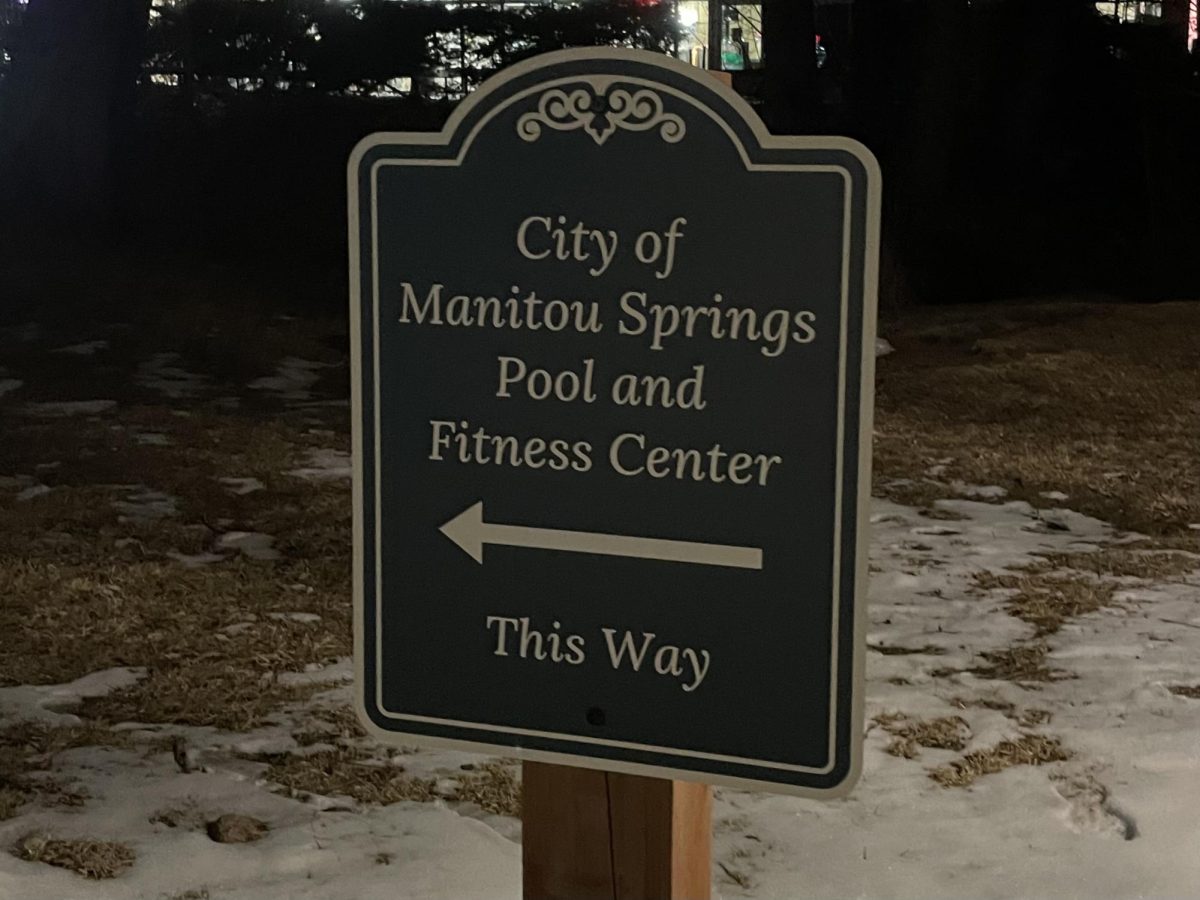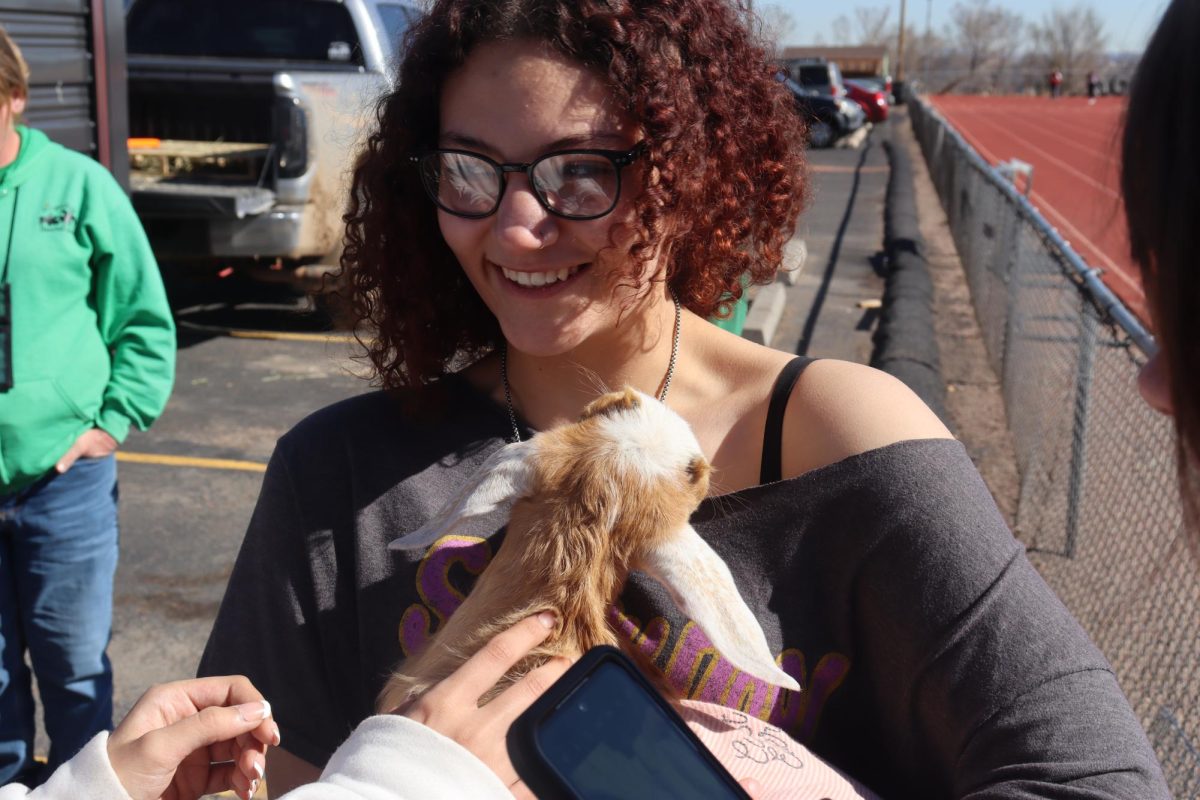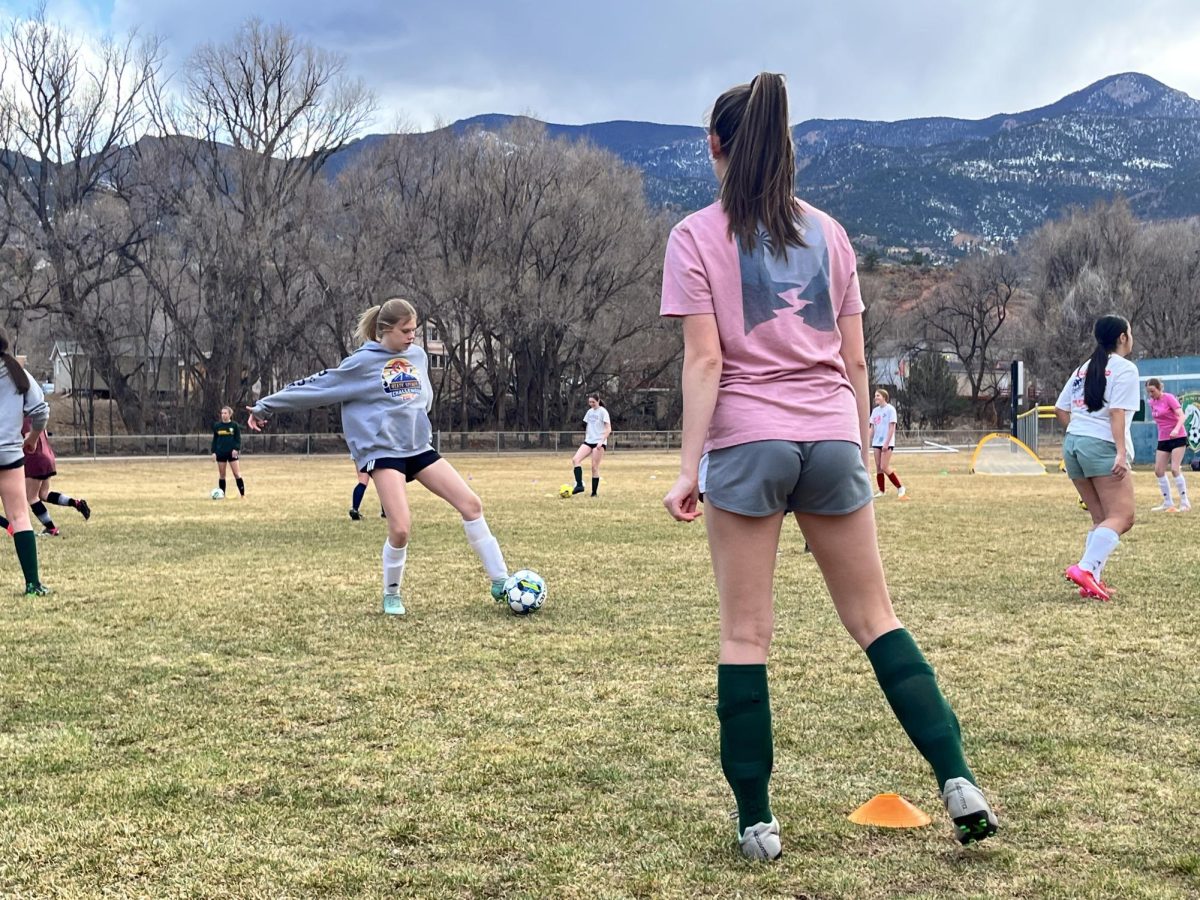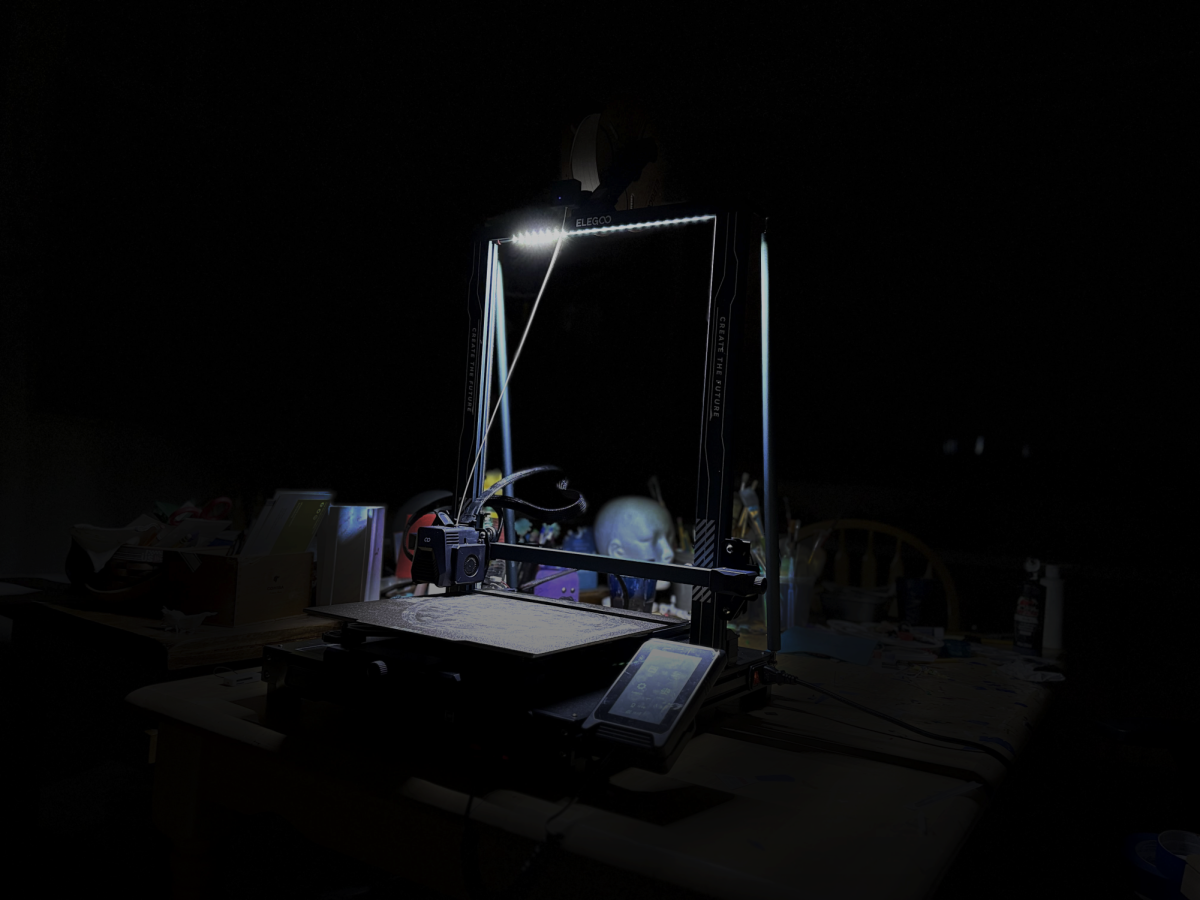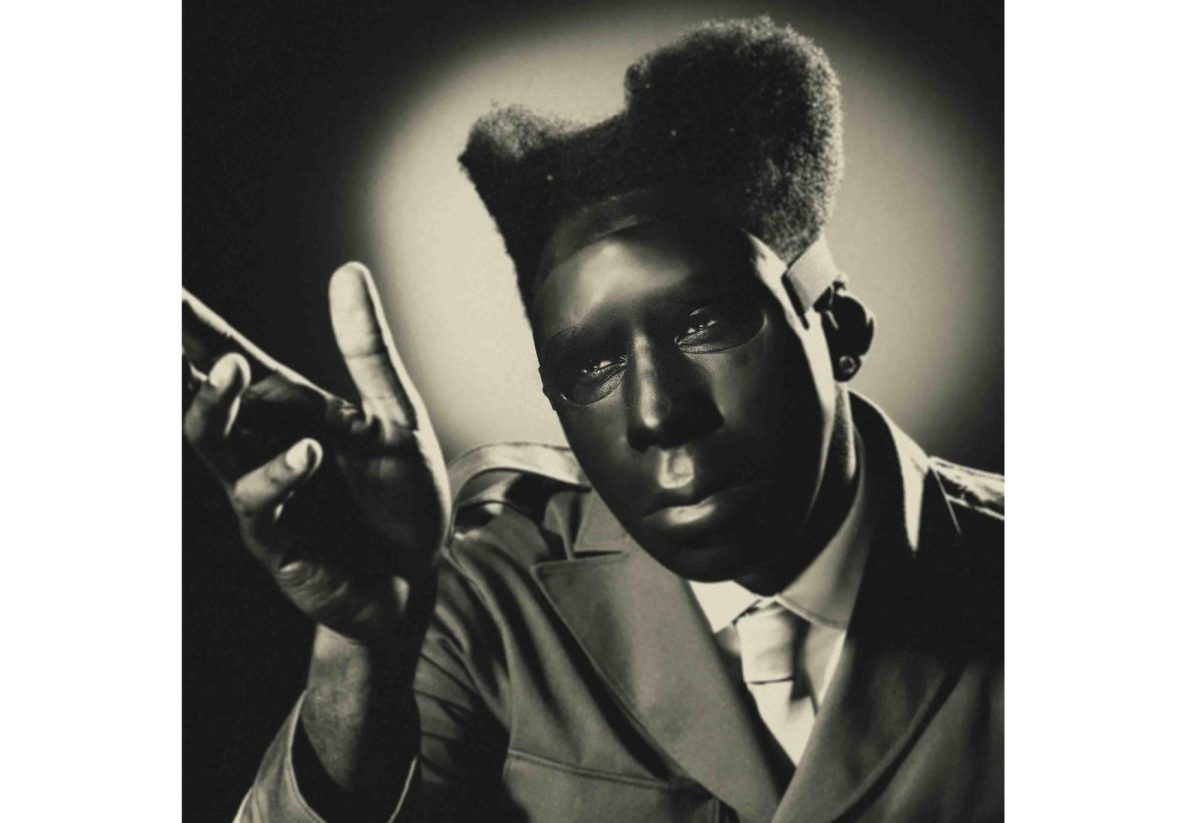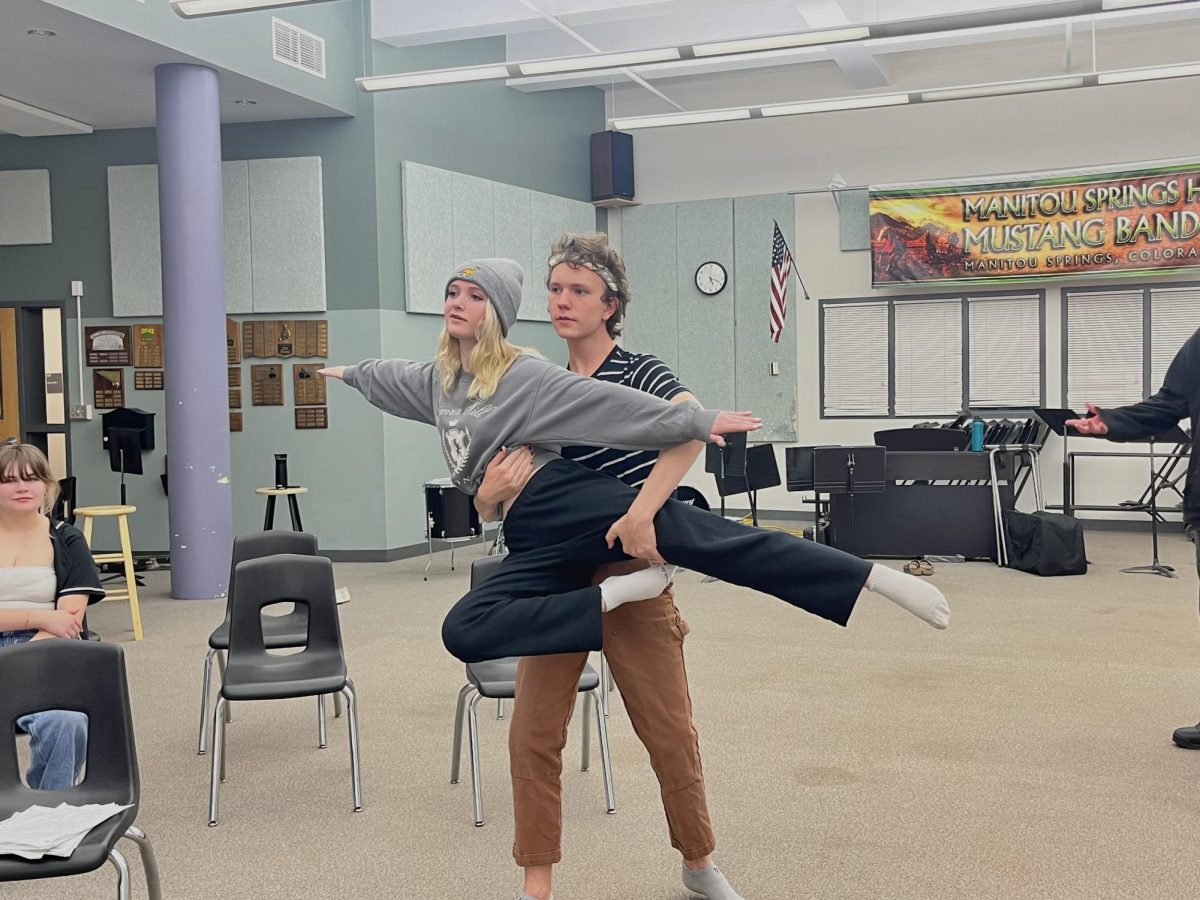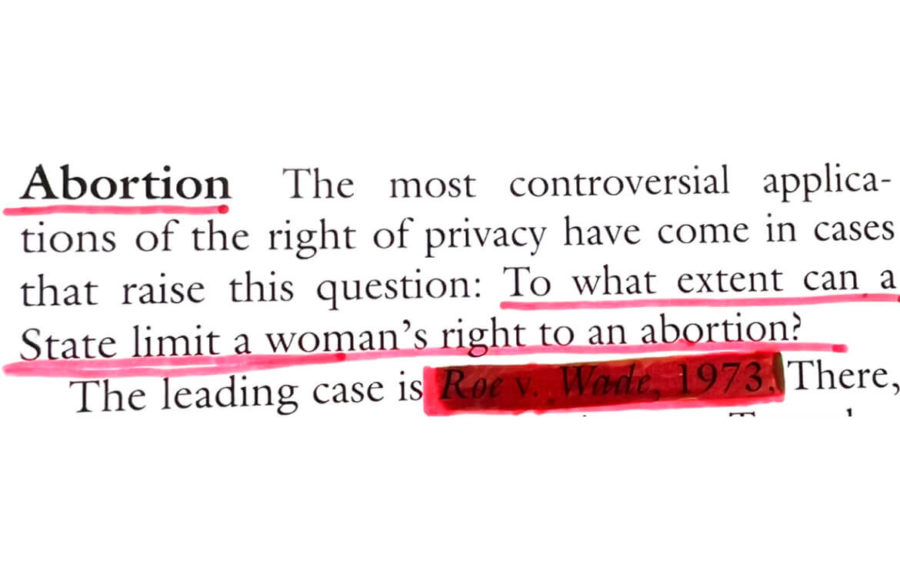Roe v. Wade: Potential overturn affects community and nation
A paragraph from Magruder’s American Government History book by William A. McClenaghan, in section 1.C, “Right of Privacy” reports about the historical Roe v. Wade court case.
May 3, 2022
Supreme Court Justice Samuel Alito wrote a 98 page draft majority opinion which was released by Politico on May 2, 2022. This opinion draft addresses Roe v. Wade, opposing it and asking that it be overturned.
This potential overturning will affect all states, including Colorado which is a blue state. “I think no matter what, the amount of abortions is not going to change,” senior Atticus Baker said. “The amount of safe abortions is going to plummet. People are more likely to get injured or die because of this supposed overturning. Locally there may be more of a political divide because of this ruling.” .
Recently, there has been a regression in progress in the ruling. Whether that progress is viewed as good or bad, Roe v. Wade is coming back up almost 49 years later in 2022.
Alito shared this opinion among the justices back in September, but now an official majority opinion has been drafted. On May 3, 2022, The Supreme Court confirmed that the draft was official.
Although it is rare for an original ruling to be overturned, it is possible. With little information, the amount of facts that can be supported are slim. There is no date set for the hearing yet.
“If the court does overturn Roe, it will fall on our nation’s elected officials at all levels of government to protect a woman’s right to choose. And it will fall on voters to elect pro-choice officials this November,” said President Joe Biden to the Washington Post.
The President isn’t the only leader responding to Justice Alito’s opinion. “I think, being an optimist, that this will create discussion around women’s reproductive rights. Instead of creating partisanship, it could create discussion on women’s health, the power of the Supreme Court, and whether they have the right to make decisions about women’s reproductive rights,” said Jesse Hull, principal at Manitou Springs High School.
But Hull also sees the event realistically. “My concern is that it will create more polarization within communities,” he said. “The other thing is that 70% of America supports Roe v. Wade. The other concern is now we have the red and blue states and this will ingrain the division to become stronger. It’s going to be up to states to determine what abortion looks like.”
What is Roe v. Wade?
For those who don’t know, January 22, 1973 was the day Roe v. Wade was enacted. Regardless of the standpoint one holds, this day was impactful to all.
Roe v. Wade began when Jane Roe (which, at the time was a fake name, in order to hide her identity as the plaintiff) instituted action on Henry Wade. Wade was the district attorney of Dallas County at the time.
Wade held beliefs that abortion should be criminalized, so he made it happen. Roe felt this was unconstitutional and unfair to women.
Wade’s ruling stated abortion is unlawful for women, without being under the correct circumstances. These circumstances being life threatening conditions to either the mother or fetus.
Roe, who was a single, pregnant mother, began the process to change this action. Once the hearing happened, Roe won with a 7-2 vote. This vote deemed that it was unconstitutional to ban women’s rights against abortion, under the Medical termination Act of 1972.
The potential affects of a Roe v. Wade overturn
“I think for Manitou specifically, it’ll affect a lot of people, and how they perceive their government as a whole,” said senior Grayer Whipkey. “But when it comes to the Supreme Court, I do think that they should be able to regulate this. They need to look at it by laws. Although we have no direct correlation in a change that we can make, we might want to get a different side on what the government is and can be doing.”
National news organizations have weighed in on the opinion as well. According to NPR, a few things could happen in the case of Roe v. Wade being overturned. States that decide to ban, or highly restrict abortion, will see those who need an abortion seeking these medical procedures elsewhere. Hence, the states that are not restiricting or banning abortion will see an influx of patients.
The Washington Post stated that over half of the states will ban or highly restrict abortion if the overturn is passed. With the influx of abortion patients, women of color will be more restricted than they already are. According to The Associated Press, women who are black or Hispanic make up a higher percentage of those who get abortions than anyone else. Healthcare systems in the United States will not only see an influx in the amount of people who need an abortion, but they will begin to see those who are harmed with the denial of an abortion.
A study done by University of San Francisco, California showed that women who gave birth after being denied a wanted abortion found themselves in economic hardships. These women were shown to be more likely to raise the child alone and were more likely to develop serious health conditions than those who were approved to have the procedure.
Senior Tallulah Bates has been following the development of the potential Roe v. Wade and is concerned about the implications it holds for the future, but she understands that her economic and educational privledge safeguard her.
“Personally, I do not think it will have an effect on me because I am lucky enough to have access to healthcare and sex education,” said Tallulah Bates (12). “I think taking away the right to a safe abortion is going to cause unsafe abortions and a higher death rate among women who are regulated. Women who do not have the same access that I do will be very negatively impacted by this overturn.”





